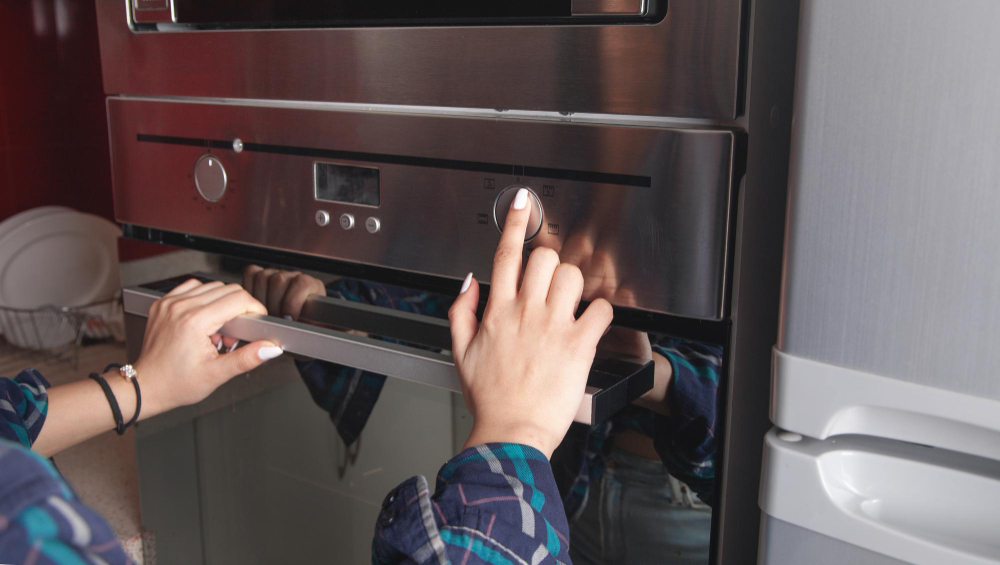Do ovens use a lot of electricity? Do ovens turn off automatically? These are the fundamental questions electric oven owners ask when they want to use their ranges regularly. Electric stoves are commonly seen in flats and rental properties since they are less expensive and easier to maintain, which benefits property managers and landlords responsible for maintaining the property. In addition, cooking on electric stoves, particularly glass-ceramic cooktops, is preferred by most individuals who conduct basic, everyday cooking because its flat surface is simple to clean. On the other hand, the electric coiled cooktops will require more effort to clean, but the coils are inexpensive and quick to replace if necessary.
It is a disadvantage of electric ranges that they typically do not heat fast as a gas burner does, so you will have to wait every time you want to raise or lower the temperature. Professional chefs and household cooks alike will find this cooktop less ideal because you have less control over the amount of heat and the time it takes for the temperature to change.
Electric burners also retain their heat for a more extended period after being turned off, causing the contents of a pot left on the stove to continue to cook and finally burn. Because the cost of electricity is higher than natural gas, you’ll wind up paying more throughout your lifetime.
Will Oven Automatically Turn Off After Timer?
Any electrical cooking appliance or equipment with a mechanical or electrical problem automatically shuts off. As a result, ovens are an electrical and necessary cooking item, so if you’re aware of the “automatic switch off” issue, you could wonder if ovens turn off automatically. Most ovens now come with touchpad clock regulators, which means they turn off automatically after 12 hours to save energy. Furthermore, if an oven’s ventilation system is obstructed, the temperature sensor malfunctions or the heating components are damaged, the oven will shut down.
A defective temperature sensor, also known as a thermistor, might cause an oven to turn off on its own. After 12 hours, most ovens and ranges with touchpad clock controls will automatically switch off. If the oven is mistakenly left on, this provides peace of mind and energy efficiency. Unfortunately, the automatic shutdown is not available for models that lack a clock or timer. If the oven must be left on for longer than 12 hours, this feature can be turned off. Consult your owner’s handbook to override the 12-hour shut-off option.
Why Do Ovens Turn Themselves Off?
Ovens will turn off either because of an automatic timing function that limits use to twelve hours per use or something tripped in the system that caused the range to turn off to prevent a fire.
An electric stove works because it has a set of coils visible or hidden beneath the cooking surface (if you have a glass-ceramic smooth top). When you turn it on, it turns bright orange because electricity flows through the coils, heating the metal and converting the coils into vivid orange color. However, because it’s challenging to know exactly how hot the surface is, using the knobs on a gas stove set to low, medium, or high isn’t always as accurate as using an actual flame to determine the temperature.
Ovens can turn off on their own. It happens because most new ovens are built and manufactured with touchpad clock regulators that are self-regulating, and as a result, the ovens shut off after 12 hours. One of the most common causes is a congested ventilation system. When an oven’s regular airflow is restricted, it overheats, causing it to cut off abruptly to avoid mechanical problems.
What Happens If You Forgot to Turn Off the Oven?
We forget to switch off the oven after turning it on to cook dinner or bake cookies! – The consequences of leaving an oven on can be devastating and even fatal. You can start a fire if you leave an electric oven on. It’s possible that leaving a gas oven on will result in a fire and carbon monoxide poisoning. If you’re going to keep an oven on overnight, an electric oven is safer than a gas oven because it runs on electricity and doesn’t produce carbon monoxide. Gas ovens should never be left alone overnight, and they should never be used to heat your home.
After 12 hours, many ovens and ranges with touchpad clock controls will automatically switch off. If the stove is mistakenly left on, this provides peace of mind and energy savings. Some versions featured the automatic oven shut-off feature when it was first launched, whereas others did not.
Temperature dials can be melted if an electric oven is left cracked open at the maximum heat setting. The longer a range is left on, the more likely it is to experience an electrical problem, resulting in a fire, especially if it is left unattended. Leaving a gas burner on can quickly escalate into a hazardous situation if the gas stove is left alone, which happens to be the most prevalent cause of kitchen fires. Cooking fires are most commonly caused by unattended cooking, accounting for one-third of all fires. You can start a fire if you leave an electric oven on. In addition, it’s possible that leaving a gas oven on will result in a fire and carbon monoxide poisoning. Cooking is the most common reason individuals go to their stoves all day and overnight.
Do Most Ovens Turn Off?
If your electric oven or range was manufactured in 1995 or after, it certainly has an auto shut-off mechanism. By looking at the stove, you can typically tell if it has a touchpad clock. It will automatically switch off after 12 hours of use if it does. Unfortunately, earlier versions from before 1995 do not usually include this safety feature. I’d suggest checking with the manufacturer of your oven model to see if it has an auto turn-off switch.

